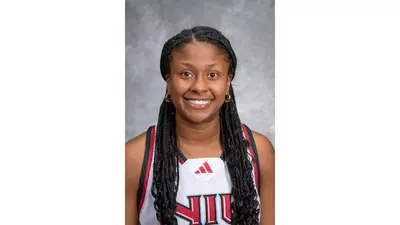University of Illinois College of Engineering issued the following announcement on Jan. 24
Research projects led by Carle Illinois College of Medicine faculty members, staff, and students have been awarded funding to create new solutions to vexing health care challenges. Through the Jump ARCHES (Applied Research in Community Health through Engineering and Simulation) program, more than $1.4 million in funding is being awarded to 20 research efforts, including eight projects involving representatives of Carle Illinois.
The Fall 2021 Jump ARCHES grants addressed post-COVID health challenges, data security and privacy, personalized medicine, health literacy of underserved populations, and neurological disorders. Many of the awards represent new projects, while some will build on previously funded efforts.
“These grants reflect areas of tremendous research success on the U of I campus at the intersection of engineering and medicine. Researchers solve problems faced by real clinicians in hospital settings with cutting-edge technology,” said T. Kesh Kesavadas, Director of the Health Care Engineering Systems Center.
The Jump ARCHES endowment program is a partnership between OSF HealthCare and the University of Illinois Urbana-Champaign and its College of Medicine in Peoria (UICOMP). Grants support research involving clinicians, engineers, and social scientists to rapidly develop technologies and devices that could revolutionize medical training and health care delivery.
Carle Illinois faculty, staff, and students are among the investigators on the following projects funded in the Fall 2021 grant cycle:
- Prospective Observational Study: Identification of Brain Micrometastatic Disease Using Ultra-High Field Magnetic Resonance Imaging
Wael Mostafa (Carle Illinois Clinical Assistant Professor; Carle Health); Aaron Anderson, UIUC; Paul Arnold, (Carle Health; Carle Illinois Clinical Professor); Anant Naik (Carle Illinois Class of 2023); Annabelle Shaffer (Carle Illinois Class of 2025); Sinisa Stanic (Carle Health; Carle Illinois Clinical Associate Professor); Brad Sutton, (The Grainger College of Engineering, Department of Electrical and Computer Engineering; Carle Illinois Professor, Biomedical and Translational Sciences); Charee Thompson, UIUC; Andrew Tsung, OSF HealthCare; Vamsi Vasireddy (Carle Health; Carle Illinois Clinical Assistant Professor); Blake Weis (Carle Health; Carle Illinois Clinical Assistant Professor); Tracey Mencio Wszalek, UIUC
The project outlined here will provide new information about the frequency and prognosis of micrometastases. Comparisons will also be drawn regarding treatment efficacy. Additionally, we include rich quality of life data for brain metastases of all sizes. Combined, this data will support the usage of innovative ultra-high-field imaging in clinical practice and better inform clinicians treating metastatic brain disease.
- Development of a Trusted Execution Enclave to Securely Link Computational Modeling to a Medical Imaging Database
Matthew Bramlet, UICOMP, OSF HealthCare; Brad Sutton, (The Grainger College of Engineering, Department of Electrical and Computer Engineering; Carle Illinois Professor, Biomedical and Translational Sciences); Andrew Miller, UIUC
The primary objective of this project is to create a Picture Archiving and Communication System (PACS) plug-in tool that will allow researchers to run various algorithms on these large imaging datasets without exposing protected health information (PHI). This proof-of-concept project requires solving several problems to bridge the gap between research algorithms and access to an imaging database while ensuring data security and privacy.
- Development of a Coordinated and Community-Focused Network of Antibiotic Use and Resistance Data
Ellen Moodie, UIUC; Thanh (Helen) Nguyen (The Grainger College of Engineering, Civil & Environmental Engineering; Carle Illinois Professor, Biomedical and Translational Sciences); Rebecca Smith (College of Veterinary Medicine, Department of Pathobiology; Carle Illinois Health Innovation Professor); Rachel Whitaker, UIUC; Brian Laird, OSF HealthCare
In order to understand the human context in which antimicrobial resistance evolves, we need to be able to collect and coordinate data on the relationship of people and health care providers in a diverse community that has been identified as a health care desert.
Rebecca Smith
This must include both qualitative data in particular vulnerable communities and aggregated and comprehensive but local across health care providers (metadata on prescription practices and diagnostic results) which is uncoordinated amongst the many organizations working in this community. Therefore, we will also create a data coordination platform for the secure and anonymized sharing of data related to antimicrobial use and resistance within the Champaign County community as an exemplar of dynamics in a multi-cultural agricultural landscape with substantial human mobility.
- Facial pressure ulcer detection using a wearable sensor patch (WSP)
Anusha Muralidharan, UIUC; Placid Ferreira, UIUC; Shandra Jamison, (Carle Illinois Simulation Center Manager); Deborah McCarter, OSF HealthCare
This propsal seeks to develop a wireless sensor patch system for continuous monitoring of facial pressure ulcers. It will integrate force, temperature, and relative humidity sensors into a flexible printed circuit design (FPCB).
- Monitoring the Health of the Hospital: Using Wearable Sensors to Monitor Nursing Stress
Abigail Wooldridge (The Grainger College of Engineering, Department of Industrial and Enterprise Systems Engineering; Carle Illinois Assistant Professor, Biomedical and Translational Sciences); Deborah McCarter; Alexandra Chronopoulou, UIUC
Medical errors are estimated to cause more than 250,000 deaths per year in the U.S. and could be by caused human factors/ergonomics (HFE) issues, including provider stress and fatigue. Our long-term goal is to develop a system to monitor provider stress in real time, allowing health care organizations to reduce the risk of burnout and medical error. The overall objectives in this proposal are to develop a scalable data stream of physiological data and validate knowledge extracted from the data stream.
- Low pathogen counts in whole blood samples
Rashid Bashir (The Grainger College of Engineering Dean; Carle Illinois Professor, Biomedical and Translational Sciences); Enrique Valera, UIUC; John Farrell, UICOMP, OSF HealthCare
This project will demonstrate the feasibility of a new platform to achieve the detection of low bacteria and fungi counts (1-3 CFU/mL), in less than 2 hours, analyzing large volumes of whole blood (up to 5 mL) from clinical samples. Likewise, we would like to advance our understanding of the reaction mechanisms and fundamental questions regarding the bi-phasic reaction.
- Physiological and anatomical biomarkers for epilepsy antiepileptic drug therapy
Hua Li, (Department of Bioengineering, Cancer Center at Illinois; Carle Illinois Research Associate Professor, Biomedical and Translational Sciences); Michael Xu, UICOMP, OSF HealthCare; Fan Lam, (Department of Bioengineering; Carle Illinois Assistant Professor, Biomedical and Translational Sciences); Yogatheesan Varatharajah, UIUC
Fan Lam
This study aims to develop a comprehensive and robust computational model for the prognosis of AED treatment response. Prognosis models will be developed based on advanced belief function theory (BFT) and deep learning (DL)techniques and utilizing a large cohort of retrospective patient cases. Our preliminary studies have demonstrated the promising performance of the resulting prognosis models.
- A Deep-Learning Augmented Point-of-Care Device for Antibody Quantification
Yang Zhao, UIUC; Yun-Sheng Chen (Department of Electrical and Computer Engineering, Department of Bioengineering; Carle Illinois Research Assistant Professor, Biomedical and Translational Sciences); John Farrell, UICOMP, OSF HealthCare
This proposal will address the unmet need for point-of-care serological tests with quantifiable and improved accuracies. Our goal is to develop a cost-effective SARS-CoV-2 serological testing mechanism that minimizes false-positive rate and is ready for scaling up for large-scale screening. The objective of this proposal is that the team will work together to develop a machine-learning-enabled detection mechanism that can quantify the antibody responses due to SARS-CoV-2 in minutes with pg/mL sensitivity using a cost-effective chiral fluorescent sensor and handheld readout devices.
The original article and the full list of grant recipients can be found here.
Jump ARCHES was established in 2014 by a $62.5 million gift to provide direct access and competitive grants to engineers and physicians working together to combat problems in the realm of health care. In 2019, the partnership was expanded with a new commitment of $50 million.
Proposals for the Spring 2022 Jump ARCHES grant cycle runs from February 1-28, 2022.
Original source can be found here.






 Alerts Sign-up
Alerts Sign-up